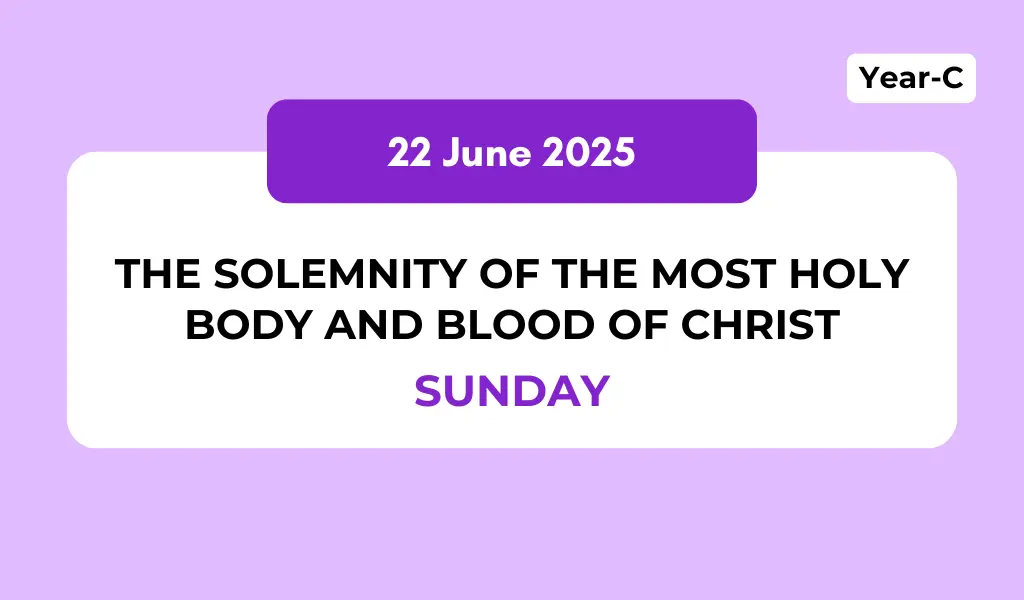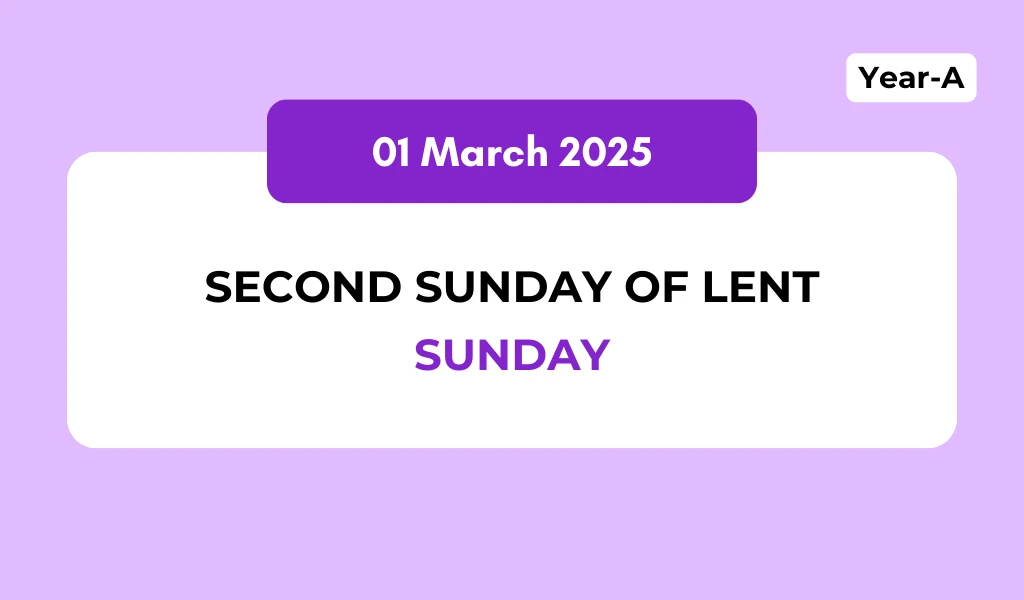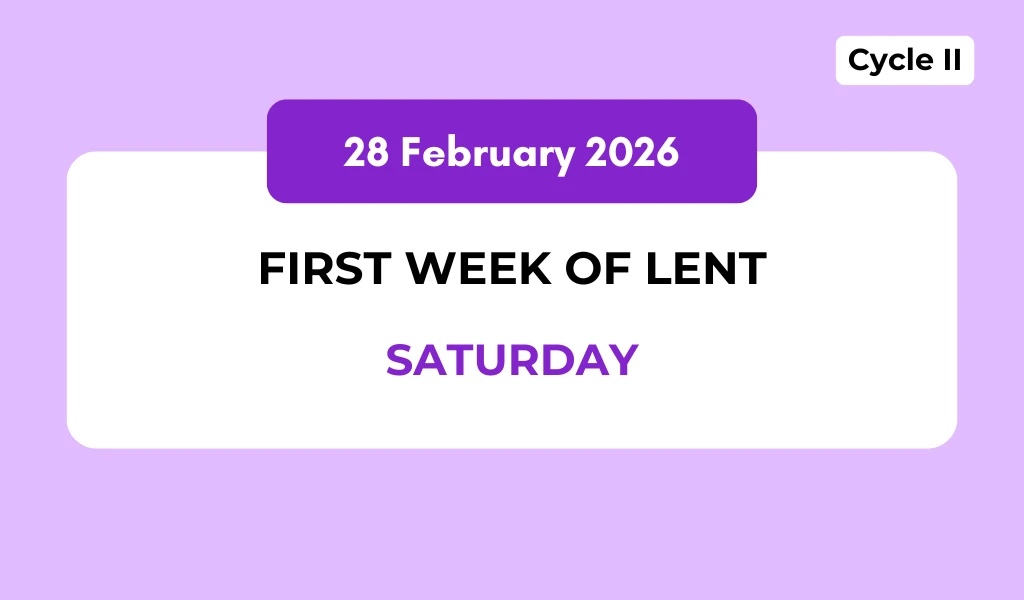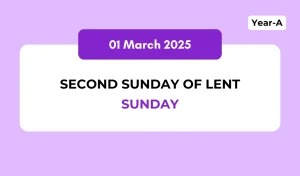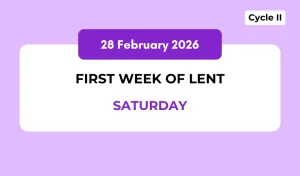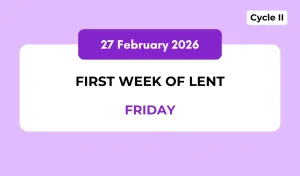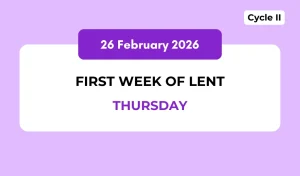Catholic Mass Readings and Reflection June 22, 2025
Sunday – The Solemnity of the Most Holy Body and Blood of Christ
22nd June 2025 (Sunday)
Psalter: Proper
Readings of the Day
First Reading: Genesis 14:18-20
In those days: Melchizedek king of Salem brought out bread and wine. (He was priest of God Most High.) And he blessed him and said, “Blessed be Abram by God Most High, Possessor of heaven and earth; and blessed be God Most High, who has delivered your enemies into your hand!” And Abram gave him a tenth of everything.
Psalm 8:4-5, 6-7, 8-9 R (2a)
R/. You are a priest forever, in the line of Melchizedek
Second Reading: 1 Corinthians 11:23-26
Brethren: I received from the Lord what I also delivered to you, that the Lord Jesus on the night when he was betrayed took bread, and when he had given thanks, he broke it, and said, “This is my body, which is for you. Do this in remembrance of me.” In the same way also he took the cup, after supper, saying, “This cup is the new covenant in my blood. Do this, as often as you drink it, in remembrance of me.” For as often as you eat this bread and drink the cup, you proclaim the Lord’s death until he comes.
Gospel Acclamation
V/. Alleluia
R/. Alleluia
V/. I am the living bread that came down from heaven. Says the Lord; If anyone eats of this bread, he will live for ever
R/. Alleluia
Gospel: Luke 9:11b-17
At that time: Jesus spoke to the crowds of the kingdom of God and cured those who had need of healing. Now the day began to wear away, and the twelve came and said to him, “Send the crowd away to go into the surrounding villages and countryside to find lodging and get provisions, for we are here in a desolate place.” But he said to them, “You give them something to eat.” They said, “We have no more than five loaves and two fish—unless we are to go and buy food for all these people.” For there were about five thousand men. And he said to his disciples, “Have them sit down in groups of about fifty each.” And they did so, and had them all sit down. And taking the five loaves and the two fish, he looked up to heaven and said a blessing over them. Then he broke the loaves and gave them to the disciples to set before the crowd. And they all ate and were satisfied. And what was left over was picked up, twelve baskets of broken pieces.
Daily Gospel Reflection
Sunday – The Solemnity of the Most Holy Body and Blood of Christ
Main Point: The Eucharist is not merely a ritual or remembrance, but a living memorial of love, a sacrament of unity, and a nourishment of eternal life
1. The Solemnity of Corpus Christi invites us into the sublime mystery of God’s boundless love made visible and tangible in the Holy Eucharist. It is the most sacred banquet in which Christ gives not just gifts, but His very self as food and drink. In a world of scarcity, self-preservation, and spiritual emptiness, the Eucharist is God’s abundant response, satisfying not just hunger, but healing brokenness and uniting the scattered.
2. The Gospel presents Jesus as not only teacher and healer, but as the host of divine hospitality. To a weary crowd in a lonely place, He multiplies five loaves and two fish to feed thousands. But deeper than the miracle lies a profound symbol—Jesus offers Himself as the true Bread that satisfies the deepest hunger of humanity: the hunger for meaning, communion, and eternal life.
3. In Genesis, we see Melchizedek, the priest-king, offering bread and wine—a mysterious foreshadowing of the Eucharistic offering. This priesthood is fulfilled in Christ, the eternal High Priest, who offers the perfect sacrifice of His Body and Blood, not just on the altar of earth, but before the throne of the Father. The Eucharist thus unites heaven and earth, time and eternity, suffering and salvation.
4. St. Paul reminds us of the sacred memory enshrined in the Eucharist: “Do this in remembrance of me.” But this remembrance is not nostalgia. It is a living participation in the Paschal Mystery. Each Mass makes present the death and resurrection of Christ. In the Eucharist, we are not just spectators; we become partakers—of His suffering, of His mission, and of His glory.
5. The Eucharist also forms the heart of Christian unity and service. Just as the bread is broken and shared, we too are called to be broken and shared for others. This sacrament compels us to live what we celebrate—by becoming bread for the hungry, comfort for the weary, and presence for the abandoned. It is not only communion with Christ but also communion with one another.
6. Ultimately, the Eucharist is the secret of endurance and sanctity. When trials test our strength, when loneliness gnaws at our peace, when sin stains our conscience—this Bread from Heaven strengthens, forgives, and renews. In every Holy Communion, Jesus repeats His promise: “Whoever eats this bread will live forever.”
My Practice: The Eucharist is the summit and source of our Christian life. Let us approach it not as a ritual routine but as a sacred encounter. May we receive it with reverence, live it with gratitude, and share it through charity.
